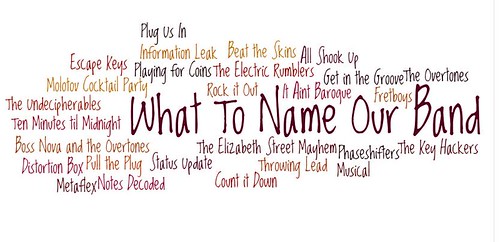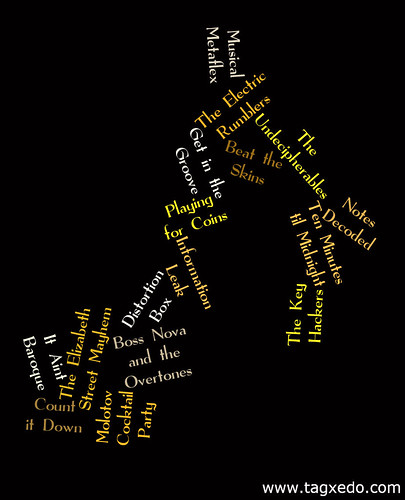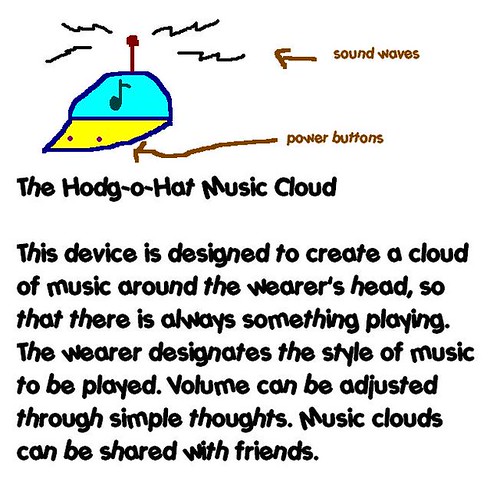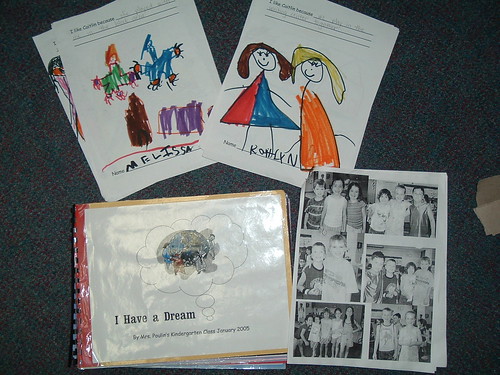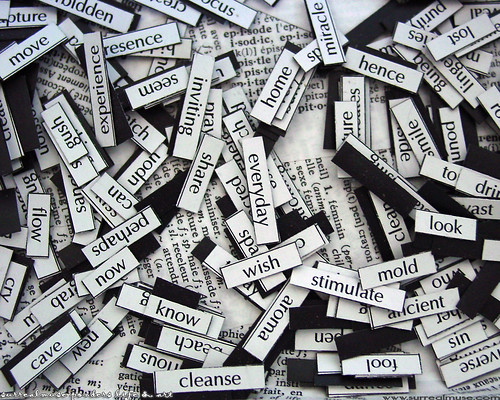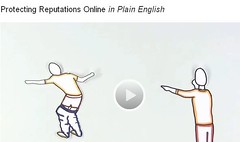
A conversation last week with students had me revising some of my lesson planning yesterday in a way that I won’t ever regret. The conversation was about my sixth grade students and their online lives, and how the things they do now, today, might impact the things they want to do tomorrow. I know a lot of high schools are working this idea of online responsibility and reputation into their curriculum (right?) but I need to expose my students, too.
This all began as we were beginning our work with Glogster, and setting up accounts for students. I had already done most of the legwork but I wanted to show them how to change their passwords and how to edit their profile in our closed system of our classrooms. I told them that I wanted to see only first names and last initials.
“Why not our last names?” asked one student.
Here, I went into my routine of explaining how, even in a closed online system like our Glogster site and even our Bitstrips Webcomic site, I want them to use only first name, last initial so that they get “used to never identifying who you are online.”
“What about Facebook?” this student quickly countered. A few heads nodded in the room. I thought back to a day earlier, when I was at our school’s Facebook site and noticed one of my students who had “liked” the site and read with dismay his full name (he is only 12 years old).
I launched into an impromptu discussion then about the rules of Facebook (no one under 13 is allowed to have an account), about privacy issues around personal information, about safety issues, and then ended the conversation with a suggestion that any student on Facebook should consider getting off it until they are 13 and they have their parents’ permission to get back on. (I didn’t ask how many were on Facebook without their parents’ knowledge, which I am sure is a few.)
But it bugged me that I wasn’t better prepared for that discussion. And it bugged me that clearly, some parents were not having these discussions at home with their children.
When it comes to online identity, it’s clear that our kids are not even thinking about it. They jump in, explore, post and comment, create and publish — all the things that I as a teacher want to nurture — but they do it without a single thought to what they are doing, and what tiny digital scraps of themselves they are leaving behind. While some students “construct” online versions of themselves (with avatars, with profile information, etc.), I don’t believe many of them are doing it with forethought. It’s just something cool they can do, so they do do it. What we want is a reflective stance, so that they choices they make have meaning and value, and come from the concept of “this is who I am online.” For my students, this rarely happens, as far as I can tell.
So, yesterday, we spent some a large chunk of time talking about why we protect our identity when in online spaces and strategies that we can use to cover our digital tracks. We began with the safety issue — of the “creeps” who use online sites to do creepy things — and I talked about how those events will get big headlines in the news, but are in reality very rare. Which is not to say things never happen, but they are rare. My message: don’t be afraid – be cautious. Be alert. Be thoughtful.
Then, we talked about the bigger topic of Protecting Online Reputations. I could see this was something very few of my students had ever even considered — that the things they are posting today might have an impact on their lives tomorrow, or a few years down the road. I showed them the CommonCraft video Protecting Online Reputations in Plain English, which does such a nice job of addressing this issue in a balanced way. One thing I like is that the video talks about the responsibility of protecting reputations falls not only you but also on us — the circle of friends who might post a picture or video or something inappropriate without our knowledge.
A paraprofessional in one of my classes who has a son who is an athlete at our district high school explained, too, that coaches, the vice principal and others scour Facebook for the student athlete accounts, and any inappropriate pictures or videos or writing that does not conform to schools standards has been grounds for dismissal from sports teams. That drew shocked sounds from the class.
And, I noted, what seems funny today might not seem so funny in a few years, and maybe won’t be any laughing matter when they are sitting in a job interview and that joke gets pulled up on a potential employer’s screen. (I know getting a job seems far away for them at this age, but still …)
We then brainstormed some ideas for how we can protect ourselves and our reputations when we go online:
- Come up with good passwords (I think this will be a topic for another day)
- Share concerns with a trusted adult (parent, teacher, etc.)
- Don’t post inappropriate content (pictures, videos, etc.)
- Remember your responsibility to your friends when you post information about them
- Remember that nothing is temporary (search web crawlers make archives of everything)
- Use the “privacy” option in networking sites so that only invited friends can view your content
- Don’t use technology (instant messaging, email, networking) to “flame” or bully others
- Don’t use an actual image for your avatar
- Keep your last name private
And this is important: I balanced all of this alarming talk with the positive elements of the online world. There are so many potential great things, and more on the horizon, that one should not be fearful of doing anything. But we users need to make sure that the image of ourselves, and our reputation, is something we create, and is not created by others.
I suggested a bit of homework to them: Google yourselves and see what you find. And then, do it again in six months. And then again, in another six months. Keep track of your digital footprints.
Peace (in the reputation),
Kevin
